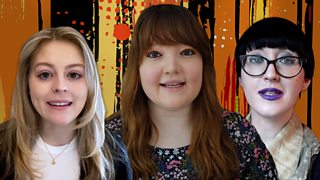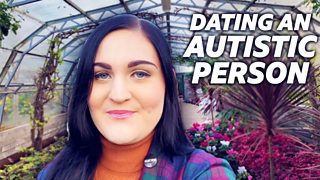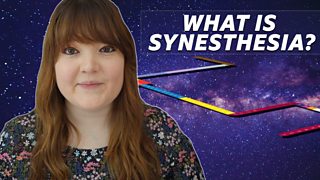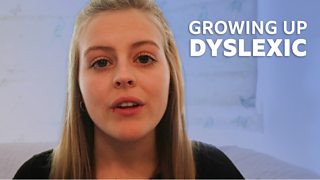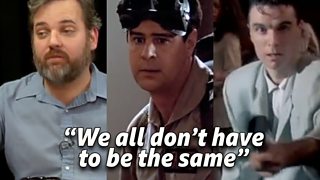Meet the young adults embracing neurodiversity
“We can’t choose the way our brains are wired” says Josie Duncan, one of an increasing number of young people who are embracing their neurodivergence.
Neurodiversity is the umbrella term for the range of differences in how our brains function, which includes ADHD, autism, dyslexia, and synesthesia among others. In Josie’s case it’s dyscalculia, which affects the way she processes numbers and other numerical information like maps and clocks.
While these conditions are often thought to mainly impact school students and their learning experiences, the reality is these are with a person for life.
“(Things like dyscalculia) are so often associated with children and to me this is really odd because they’re something we rarely grow out of,” says Josie. “I also worry that this association can make some adults feel ashamed, and there shouldn’t be any shame in it at all.”
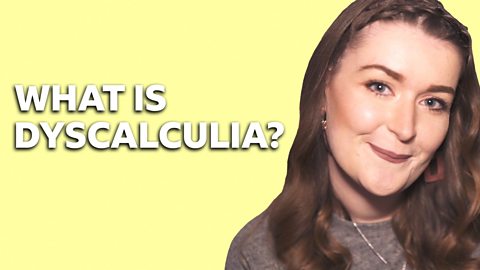
Living With Dyscalculia
Dyscalculia is often described as "number dyslexia" but it's not quite as simple as that.
Diagnosing neurodivergence in young adults
The idea that neurodivergent conditions are always diagnosed in childhood is a popular misconception. Some get a diagnosis in their late teens, twenties and even later into adulthood.
“I was diagnosed with dyscalculia when I was 19 years old,” Josie explains. “And while I wish it could have been sooner so that I could have had help in school, I’m so glad to have a diagnosis now because I get help with things in my adulthood, such as my tax return as a self employed person.”
Josie is not alone in celebrating her differences. Taryam Boyd was diagnosed with ADHD at 22, and he believes his condition doesn’t define him, but rather has helped shape who he is as a person.
The idea that neurodivergent conditions are always diagnosed in childhood is a popular misconception.
“ADHD can be difficult but it can also be a wonderful, wonderful thing. It makes up my personality. It makes up part of who I am, and I’m proud of that,” he says.
It was only once his dad received an ADHD diagnosis that Taryam started to question whether he may have the condition as well.
“I would find it hard to focus on conversations. I would get completely distracted by my own train of thought and not hear a word that the other person had said. I always found it impossible to sit still without shaking my leg or fidgeting with something, much to the annoyance of the friends and family around me.”
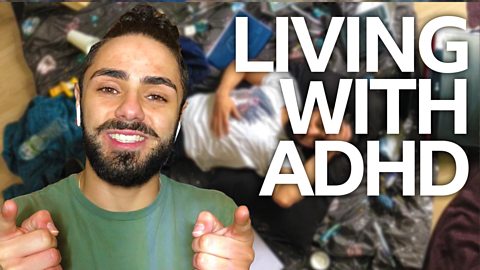
Getting An ADHD Diagnosis As An Adult
"ADHD is part of who I am and I'm proud of that."
So why is it so hard to diagnose neurodivergence in adulthood? In Taryam’s case, it took six months to receive an official ADHD diagnosis. He wanted to know why people his age struggled to be diagnosed, and reached out to The Scottish ADHD Coalition. They said:
"ADHD is now recognised as a lifelong condition, but diagnosing it in adulthood involves a health professional with ADHD training, usually a psychiatrist - taking a full and careful history, going right back into the person's childhood. Symptoms must have been present before the age of 12, and this can be very difficult for people to demonstrate unless they still have school reports or a parent willing to talk about their earlier life" - The Scottish ADHD Coalition
Supporting neurodivergent young people
Sarinah O’Donoghue was diagnosed with autism at 20 (a later diagnosis is especially common in females). One area she is keen to help educate people on is what she calls meltdowns.
She states: “‘Autistic’ is not an insult. If more people knew what meltdowns are and how to help somebody experiencing one we could remove many of the barriers faced by autistic people when it comes to inclusion and access.”
Sarinah wants to educate people so they can support friends, colleagues, or strangers who may be struggling. She explains: “For me, a severe meltdown feels like my body is trying to escape the chaos inside my mind, so I fidget, cry, and shout to try and distract myself from the even louder noises occurring internally.”
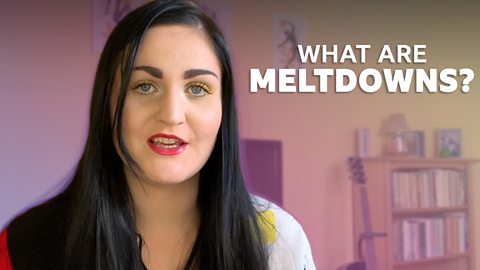
Do You Know The Signs Of An Autistic Meltdown?
Sarinah discusses autistic meltdowns – what they are and how to identify them.
Sarinah describes common signs of a meltdown as hand flapping, head hitting, kicking, pacing, rocking, hyperventilating, loss of the ability to communicate, and complete withdrawal into the self.
“All of these behaviours are methods of coping, and there’s a popular saying within the autistic community, which is: ‘we’re not giving a hard time – we’re having a hard time.’”
For Taryam, he believes there is no ‘one size fits all’ solution to managing ADHD, or supporting someone who has it.
“Everyone with ADHD has unique symptoms. So this can include things like difficulty being on time, problems being organised, difficulty managing stress, trouble holding down a job. People with ADHD can also suffer from drug and alcohol related addiction issues, as well as finding it very difficult to maintain a healthy relationship.”
While people living with neurodivergence can’t choose the way their brains are wired, we can all choose how we treat the people in our lives who function a little differently.
“Although not a solution for everyone, for me personally I manage my symptoms by taking medication, writing lists constantly and using a calendar app on my phone to track appointments. Other options include meditation, exercise and ADHD courses that help you understand your disorder better.”
As for Josie, she wants people to be more aware that not everyone processes the world around them in the same way, and that this can impact day-to-day activities.
“We live in a world that is full of numbers,” she says. “From ordering a wee coffee, to a bus timetable, to entering your pin, we come face to face with numbers so many times throughout our daily lives.
“I am a woman in her twenties who cannot read a clock. I’m aware of how easy this is to other people, but to me it’s just a circle full of numbers and lines and things are moving around. It makes no sense at all.”
While people living with neurodivergence can’t choose the way their brains are wired, we can all choose how we treat the people in our lives who function a little differently.
“Do your best to help make sure we all thrive,” says Sarinah with a smile.
